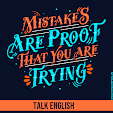The evolution of games is a fascinating journey that reflects technological advancements, cultural shifts, and changing views among players. Here's a broad overview of some key stages in the evolution of games:
- Pre -digital Games: Games have been a part of human culture for millennia. Ancient civilizations had various shapes of games, including board games like Senet in Ancient Egypt and Go in Ancient China. These games served as one and other entertainment and tools for social interaction and skill development.
- Arcade Era: The mid-20th century saw the rise of arcade games, They were typically in public places like arcades, bars, and amusement parks. Classics like Pong, Space Invaders, and Pac-Man became iconic symbols of this era.
- Home Console Revolution: The late 1970's and early 1980's witnessed the introduction of home video game consoles, such as the Atari 2600 and the Nintendo Entertainment System (NES). It's allowed people to enjoy gaming in the comfort of their homes, leading to a surge in popularity.
- Personal Computer Gaming: Alongside consoles, personal computers (PCs) became another popular platform for gaming. PC gaming offered greater flexibility and graphical capabilities, leading to the development of genres like adventure games, strategy games, and massively multiplayer online role-playing games (MMORPGs).
- Rise of 3D Graphics: In the 1990s, advancements in technology allowed for the widespread adoption of 3D graphics in games. Titles like Doom, Quake, and Super Mario 64 showcased the potential of three-dimensional gameplay, revolutionizing the industry.
- Online Gaming: The late 1990s and early 2000s saw the rise of online gaming, facilitated by the widespread availability of high-speed internet connections. It's paved the way for multiplayer experiences, online communities, and digital distribution platforms like Steam.
- Mobile Gaming: The advent of smartphones in the late 2000s transformed the gaming landscape again. Mobile games, with their accessibility and simplicity, reached a vast audience, including people who had never considered themselves gamers before. Titles like Angry Birds, Candy Crush Saga, and Pokémon Go became global phenomena.
- Virtual Reality (VR) and Augmented Reality (AR): In recent years, technologies VR and AR have gained traction, offering immersive gaming experiences that blur the line between the virtual and physical worlds. While still in relatively early stages, VR and AR have the potential to redefine how we perceive and interact with games.
- Streaming and Cloud Gaming: The rise of streaming platforms like Twitch and the development of cloud gaming services like Google Stadia and Microsoft x-Cloud are changing how games are played and shared. Players can now access and play games instantly without the need for powerful hardware, opening up new possibilities for accessibility and convenience.
- Emerging Technologies: Looking ahead, developments in artificial intelligence, machine learning, and blockchain technology are likely to influence the future of gaming. These technologies could enable more dynamic and immersive game-play experiences, as well as new forms of ownership and monetization within gaming ecosystems.
Throughout its history, The evolution of games has been characterized by innovation, creativity, and a constant push towards more immersive and engaging experiences. As technology continues to advance and new platforms emerge, the possibilities for gaming are seemingly limitless.






